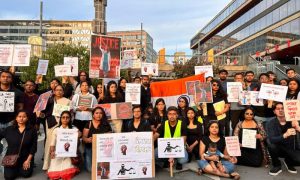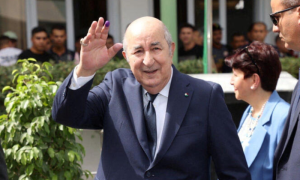NEW DELHI: The Supreme Court of India is slated to announce its verdict on Monday, December 11, regarding a set of petitions challenging the abrogation of Article 370 of the Constitution, which granted special status to the Indian Illegally Occupied Jammu and Kashmir (IIOJK). The five-judge bench, presided over by Chief Justice of India (CJI) Dhananjaya Yeshwant Chandrachud, heard the matter over a span of 16 days and reserved its decision on September 5.
Over 20 petitions filed by senior lawyers allege that the Indian government misused executive orders to divide the occupied region into Union Territories, as reported by Mint. The move, executed by Indian Prime Minister Narendra Modi’s government, involved the abolition of the autonomous status of the occupied valley and the deployment of additional troops to preempt any protests against the unilateral decision.
The abrogation of Article 370 allowed people from the rest of India to acquire property in the disputed territory and settle there permanently, a development strongly condemned by several countries, including Pakistan. Kashmiris perceive this move as an attempt to alter the demographics of the Muslim-majority region by encouraging Hindu settlement.
Criticism on Indian Govt’s Decision to Abrogate IIOJK’s Special Status
The Indian Supreme Court had previously declined to transfer the case to a seven-judge Constitution Bench in 2020, opting to retain the matter within the purview of the five-judge bench.
The decision to strip IIOJK of its semi-autonomous status triggered widespread criticism, with accusations of “settler colonialism” as Indians from other regions gained the right to buy land and secure government jobs in the disputed territory. Pakistan vehemently opposed the move, pledging to “exercise all possible options to counter the illegal steps” taken by India.
For decades, India has maintained a large military presence in the Himalayan disputed territory. The legal challenge against the abrogation contends that the change has led to the dilution of civil liberties, curbing media freedoms, and stifling public protests.
In defense of the decision, Modi’s government has asserted that it has ushered in “peace, progress, and prosperity” to the restive region. The move aligns with the longstanding agenda of Modi’s Hindu nationalist Bharatiya Janata Party (BJP) to consolidate New Delhi’s rule over IIOJK.






















